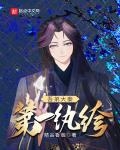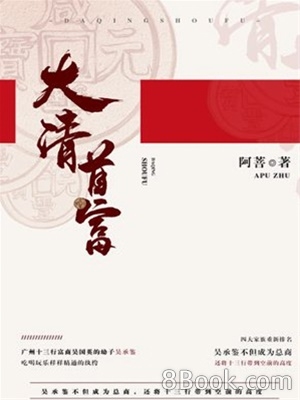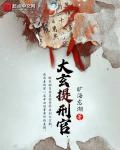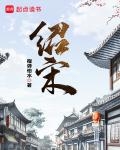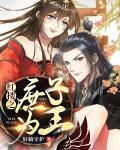Chapter 205: Risking Life (I)
Linzi was the capital of the State of Qi during the Spring and Autumn Period and the Warring States Period, and was also the capital of the Han Dynasty in 1727. It was once the largest city in China, with a series of palaces and houses. However, two thousand years later, even the palaces have been turned into dust and there is no trace of them left.
On this vast and clean land, the Han regime is making intensive preparations and using all its wisdom to fight against the enemy's butcher knife.
Gao Pang's outstanding performance in dealing with emergencies earned him a seat at the meeting.
Such treatment made Gao Pang feel that he had a say, and he couldn't help but express his opinion after Huo Chong expressed his opinion, "Sir, do you want to form a militia and then recruit soldiers?"
Huo Chong didn't know how to answer for a moment. Before Huo Chong's subordinates could fully understand Huo Chong's point of view that "villages have militias, townships have armed work teams, counties have county brigades, and prefectures have field armies", Gao Pang skipped all the intermediate links and directly stated Huo Chong's ultimate goal.
Even though Gao Pang explained it so clearly, only a few people could understand it, and one of them was Hu Yue.
But Huo Chong did not intend to call these people out for a separate meeting. Instead, he said to Gao Pang, "I understand what you said. Now don't say anything. If you can't hold it in, you can leave first."
Gao Pang looked hurt. Before he could get up and leave, he heard Huo Chong calmly say amid the laughter of others, "Stay here and listen. Verify my ideas with yours. It's a good learning process!"
Gao Pang felt his mind clear up immediately. Huo Chong was right. Mutual verification was indeed a very effective learning method.
Huo Chong started with the most basic planning when facing his people. Over the years, Huo Chong had long given up the idea of raising the bar. Since this thing was really useless and even very harmful, it was better to give up.
In the past, the Han regime had no chance to penetrate into the village. This time, the cavalry of the Eight Banners of the Manchu Mongol Army was carrying out a massacre. There was only one way to deal with them, which was to disperse the troops into the village and organize the armed forces in the village.
After saying this, Huo Chong asked, "Who do you think the village militia should listen to?"
"Of course they will listen to us." A battalion commander present at the meeting answered decisively.
"How do we make them listen to us? How do we do it specifically?" Huo Chong asked.
Everyone was a little confused. Young people had never really immersed themselves in the grassroots of society and integrated themselves with the people. For a moment, they didn't know where to start.
Huo Chong took out a stack of documents prepared by the official document office and distributed them to everyone. The documents, which exuded a pungent smell of ink, had relatively rough text, but the ink and screen printing that had been worked out with great difficulty finally enabled them to provide printed products on a larger scale.
The clerk distributed the documents to everyone, and when he got to Gao Pang, he gave him a sour look. Gao Pang was a little dissatisfied, and Huo Chong's words were actually full of appreciation. Why did the clerk express malice like this?
However, he was not interested in this at all. After taking the document and reading it, Gao Pang was immersed in it for a moment.
Huo Chong was desperately trying to deal with the situation, and officials in the capital were also responding. Although Huo Chong rebelled in Shandong, he was still a sedentary bandit and did not affect provinces outside Shandong.
But the government troops had to be transferred from other provinces and pass through other provinces. The pressure in between was too great. Faced with such a situation, the officials of the Ministry of Revenue were almost turning their hair white with worry. However, they had rat tails, so even if their hair turned white, it would not be noticeable.
At this time, many people were expecting Tian Wenjing to stand up and say a few words. After all, many government troops were recruited from Henan and had to pass through Henan. After waiting for a long time, Tian Wenjing seemed to have no feelings at all and remained silent.
Those who tried to contact Henan officials to raise objections. When the news came back, Tian Wenjing almost killed those who expressed dissatisfaction. Refutation and reprimand were the least of his faults. Some of them clamored to submit memorials directly to the emperor, but Tian Wenjing caught them and put them in jail. Then Tian Wenjing submitted memorials to frame these officials who wanted to oppose the military.
Yongzheng approved all of them and put these officials in prison.
Seeing that there was no excuse at all, the Minister of Finance had no choice but to meet with Yongzheng in person and tell him about the heavy financial pressure, especially the pressure at the local level.
Perhaps Yongzheng also knew that the situation was difficult, so he did not make things difficult for the Minister of Revenue. He just scolded him for not knowing how to serve his master well.
The Minister of Finance felt very touched. It turned out that he was serving the emperor, but in the end he was not serving the emperor well. The next day, Yongzheng announced an "edict" in the court.
The reason was that the Empress's meal at the banquet was the same as her husband, Emperor Yongzheng. Yongzheng issued an edict to reprimand her, saying, "Why does the Empress's meal have the same meal as mine? This is not only inappropriate, but also not a way to show frugality and love."
Everyone in the court is smart and clever. Although there will be new idiots who pass the imperial examinations, it is impossible for idiots to stay in the court for a long time.
The next day, the court officials all wore old court robes, many of which had patches on them.
These court robes were found by the ministers. Some ministers who had no old court robes simply washed the new court robes that night. Some ministers with particularly long experience found old court robes that were prepared by the Tenth Emperor Kangxi when he wanted to pay off his debts.
Seeing that these people were quite sensible, Yongzheng once again emphasized that the court officials should be frugal and live in an honest manner. Since the court was going to use troops , the ministers also had the obligation to serve the country.
In the following days, all restaurants in the capital were out of business. Many officials in the capital were indeed very poor, and it was easy to get into trouble by trying to make money under the emperor's feet. This was even more true after Yongzheng came to power.
Those high-ranking officials are really rich. But they know very well that if they still dare to eat and drink lavishly at this time, they are really asking for trouble.
However, the officials in Beijing were so cautious that they did not give Yongzheng a chance to get angry, and did not stop Yongzheng from letting go. Yongzheng told the ministers to serve the country. Hearing this, the middle-aged and high-ranking officials who were not cabinet ministers could not bear it and stepped forward one after another to say, "I am willing not to take this year's salary!"
After the officials finished speaking, they all lowered their heads and waited for Yongzheng's reply. Even if they were not cabinet ministers, they could have a job in a certain department, so they would not be short of money. This was the case for Han officials, and the banner officials still had ironclad crops.
He said he did not want this year's salary. The annual salary of a prince in the Qing Dynasty was 10,000 taels of silver and 10,000 hu of rice. The annual salary of a first-class general was 410 taels of silver and 410 hu of rice. This salary was indeed not small, but it was not a lot either.
In the Qing Dynasty, civil servants' salaries were divided into ten grades: the first grade received an annual salary of 180 taels of silver and 180 hu of rice; the second grade received 155 taels of silver and 155 hu of rice; the third grade received 130 taels of silver and 130 hu of rice; the fourth grade received 105 taels of silver and 105 hu of rice; the fifth grade received 80 taels of silver and 80 hu of rice.
These officials who came out to express their opinions were basically of the fourth or fifth rank, and they did not rely on salaries to make a living. The purpose of their statement was very simple, which was to hint to Emperor Yongzheng, "Please let us go."
Yongzheng's face became a little better, and he finally announced that all officials above the fifth rank could apply for a year's salary exemption. This order had nothing to do with officials below the fifth rank, and these officials were not required to give up their salaries.
The next day, Yongzheng ordered a raid on Longkodo's house.
Just when the court officials were already somewhat numb, Yongzheng announced that the execution would be carried out in the autumn. Hearing this, many officials looked helpless.
Although they dare not go out to eat, or even go to the market to purchase large quantities of meat, this does not mean that the food standards of senior officials will decline.
Sesame oil meat, such as sesame oil meat rabbit, chicken, mutton, pork, and even sesame oil beef fillet. There is no shortage of them in the kitchens and storage rooms of these high-ranking officials. Sesame oil meat is also a specialty of Huo Chong. Although the court is fighting with Huo Chong, these foods should disappear in theory. However, they still stubbornly enter the hands of those who need them through various distribution channels.
There is not much fresh meat on the officials' tables. After all, Yongzheng's sticky office is not only paying attention to the news in the palace, but also inquiring about the news of the ministers.
There are also many people in the vegetable market who pay attention to which ministers or royal family members buy meat. Through these meats, they can judge whether the officials are calling for banquets.
Sesame oil meat is delicious, but this high-pressure environment also has a certain effect on the sales of sesame oil meat. People dare not buy fresh meat. After eating sesame oil meat, pour the remaining seasoning into the cooked noodles and vegetables, stir and then season lightly, or without seasoning. It is delicious.
But this refreshing feeling did not make the officials feel relaxed. Officials who were having dinner privately all sighed that a new wave of three ones was about to happen again.
The so-called "three ones" refer to the killing of a new group of officials, the arrest of a new group of officials, and the confiscation of properties of a new group of officials.
It was already the fifth year of Yongzheng's reign, and those officials who owed money had basically been dealt with, and it was obviously not feasible to use the excuse of debt as an excuse. However, Yongzheng was going to strike again this time, especially at this cusp, which was really daunting.
Another day passed, and the content of the "Three Ones" was announced. All officials who were to be executed and arrested had their homes searched. Without exception, all of them had their homes searched. Even if they were not arrested for corruption, their homes were still searched.
The ministers in the court all understood that this was because the cost of suppressing bandits in Shandong was huge. Up to now, the total amount of 10 million taels of silver has not been raised.
This is close to half of the Qing Dynasty's fiscal revenue, and there is no end in sight in the short term. The ministers dared not say it, but lamented in their hearts that if this continued, everyone would have no choice but to die .
The next day, there was new news: Lao Jiu had died.
The ninth son, Yinzhen, was Yongzheng's brother. After Yongzheng imprisoned him, he changed his name to "Saisihei". His family was completely ransacked not long ago.
Because Lao Jiu was good at business, he had quite a lot of property. It was unknown how much silver was seized from the raids on Lao Jiu's house and then Long Keduo's house.
Starting from the eighth day of September last year, which was the day before the Double Ninth Festival, Yongzheng wiped out the last core members of the Eighth Prince Party. The Eighth and Ninth Princes were removed from the clan affairs office and changed their names. Although the Tenth Prince was not as miserable, he was also locked up at home and not allowed to go out. Together with the Fourteenth Prince who was also locked up at home and not allowed to go out, the entire Eighth Prince Party was finished.
After that, Yongzheng did not take action against other princes. A year passed, and Huo Chong was so active that many people even forgot about the Eighth Prince.
However, the death of Lao Jiu suddenly made many people remember the Eighth Master "Aqina" again.
At this time, Huo Chong's manifesto was known even in Jiangnan, and many people kept it privately. It was even more well-known in the capital. In order to help Lao Ba, Huo Chong probably emphasized that Lao Ba was a simple-minded fool. The officials in Beijing accepted this evaluation to a certain extent.
However, this kind of acceptance is not just a mockery. After all, Lao Ba is usually courteous and considerate to others. Moreover, Lao Ba's intelligence and talents are also highly praised.
The so-called "simple-minded and stupid" means that the Eighth Prince did not understand the cruel struggle in the royal family at all. He did not see through his father's cruel treatment of the princes, nor did he see through Yongzheng's forbearance and cruel personality.
This kind of idiot made Lao Ba more humane. The so-called most ruthless imperial family, a simple-minded idiot appeared in such an imperial family. With Yongzheng, who understood the emperor's mind, as a foil, "Aqina" was particularly different.
The officials all felt that if the Eighth Prince had become the emperor, everyone’s life would not be so difficult now.
Although those who supported the Eighth Prince when Kangxi played the game of power to "select the crown prince" were already ruined, the officials who were still alive now felt that those predecessors did nothing wrong. The Eighth Prince was indeed the right person to be the emperor.
What happened next made the officials feel new emotions. Li Fu was sent to the execution ground for the second time. This time, Yongzheng raided Li Fu's house, and the executioner's sword was placed on Li Fu's neck again. The supervising official asked Li Fu loudly: "Do you know what Tian Wenjing is like now? " Li Fu still held his neck, holding the sword, and shouted: "Even though I die, I still don't know what Tian Wenjing is like."
This time, the executioner did not order Li Fu's execution, allowing Li Fu to survive.
Xie Jishi, the censor who was imprisoned together with Li Fu for impeaching Tian Wenjing, was also brought to the execution ground. Before that, Xie Jishi had been on a hunger strike for five days and was only saved from starvation by the jailers who pinched his nose and forced him to drink soup.
This time, he was tied up and taken to the execution ground with Lu Shengnan. Lu Shengnan was beheaded first. At this time, the executioner asked Xie Jishi: "Did you see it?" Jishi replied: "I saw it!" Xibao read out the imperial edict at the execution ground: "Xie Jishi will be spared from death and handed over to Shuncheng Wang Xibao. He will be ordered to work as a laborer to atone for his sins and stay in the army to serve."
The fact that the two men were not dead made the officials feel that there seemed to be some miraculous change.
However, a few days later, Yinzhi asked Sukji for a bribe. After the incident, someone impeached Yinzhi in front of Emperor Yongzheng, who punished Yinzhi for not being a minister. He was stripped of his title and imprisoned in his own residence. He was then demoted to a prince, and his crime was attributed to Hongsheng, who was imprisoned by the clan government.
The officials were once again in chaos. With Huo Chong outside and Yongzheng inside, the Qing court was caught in a turmoil where no one knew who would be unlucky next or who would be finished next.
Many officials even considered whether to ask for a transfer or find a way to temporarily leave their jobs. In such a capital city, it really means that one's future is uncertain.
At this time, the officials who wanted to deal with Huo Chong secretly colluded again, and someone brought the latest news. Lao Ba heard the news of Lao Jiu's death in the place where he was imprisoned. To everyone's surprise, Lao Ba not only did not cry, but also did not have a tantrum.
The guard who was guarding Lao Ba couldn't help asking Lao Ba why he had no brotherly love. Lao Ba answered frankly: "I usually only eat one bowl of rice at home. Now I have to eat two bowls for every meal. This is to live until the emperor orders me to be executed. When I die, my head and body must be separated. I can never die like Lao Jiu."
Lao Jiu's death was really tragic. He was locked in a room with the windows nailed shut, and his hands and feet were chained. Apart from the extremely poor food, he had nothing.
Many times in the summer, Lao Jiu fainted due to the heat. Later, he developed sores on his body. Maggots crawled in the sores after they festered. Just imagining the scene of maggots crawling in the wounds all over his body made officials shudder. They believed that it was an extremely painful and tragic slow torture to death.
However, if these officials knew how Huo Chongjun Hospital dealt with suppuration, they would probably know that maggots are actually very helpful in treating wounds.
Perhaps because of the maggots that got into the wound, Lao Jiu survived tenaciously. The final cause of death was "vomiting to death", not because of a terminal illness.
People who heard the news generally believed that Yongzheng ordered the ninth prince to be poisoned to death because he refused to die in such a situation.
When talking about this, there was no trace of mockery in the officials' eyes. "To go this far is already a tyrant!"
"But can Huo Chong be used by us?"
"The Ministry of War said that the Eight Banners of Mongolia have beheaded more than 10,000 people. It's only been a few months. If they continue to kill like this, Huo Chong will not be able to hold on. At the latest, by next year, I'm afraid his own people will rebel."
The officials expressed their opinions on Huo Chong. They all knew that they were not that loyal to the Eighth Elder. If they were, they would have been killed by Yongzheng long ago.
Now everyone is gathering again, and the Eighth is just an excuse, a banner for everyone to unite. The real reason is that everyone can't stand Yongzheng anymore.
However, officials certainly could not rebel. If they rebelled against Yongzheng, they would immediately become traitors to the Qing Dynasty. Even if they got rid of Yongzheng, they would not have a place in the court.
In this case, the only tool the officials could use was Huo Chong. They did not tell Huo Chong that the Mongolian Eight Banners cavalry was heading south because, firstly, no one knew about it, and secondly, only by making Huo Chong die could they force him to obey the officials.
At this point officials felt the time was almost right.
The leader said, " Longkodo's house was confiscated and he was imprisoned. His former subordinates are guarding Dezhou. I wonder if Huo Chong can understand?"
"Huo Chong is known as a smart guy. If he is really smart, he should be able to understand."
"But will this fellow be like Yuan Shao, cherishing his life for the greater good and forgetting his life for the sake of small gain?"
"We might as well tell Huo Chong that only by rescuing the Eighth Master can Huo Chong survive. If the Eighth Master dies, no one will get around Huo Chong. As long as Huo Chong understands that we really need him, this guy should be able to rest assured."
"Ah... I hope so."

